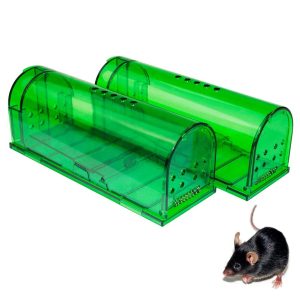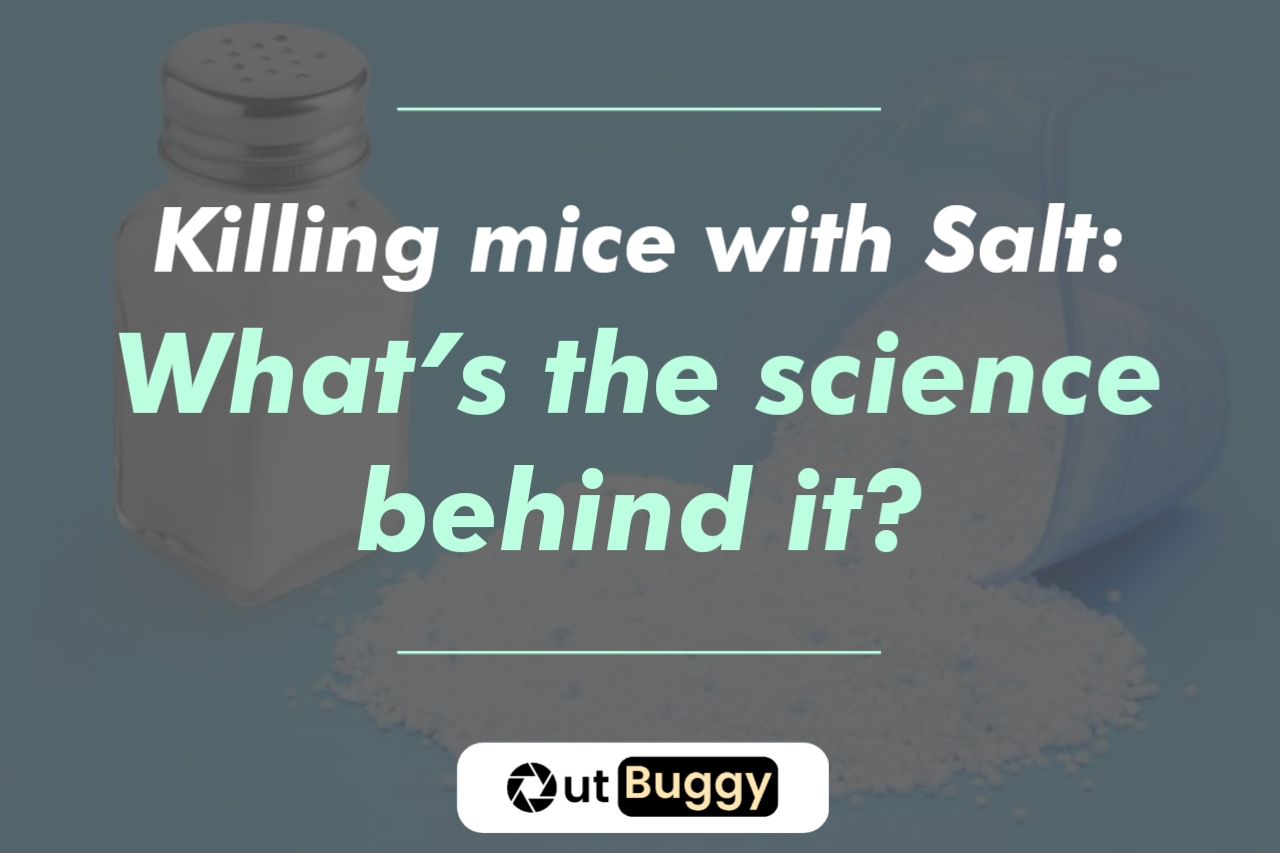When it comes to controlling a mouse infestation, there is a broad spectrum of methods out there, ranging from traditional traps to advanced ultrasonic devices.
However, the suggestion of using a common household item, salt, to kill mice is an idea that is quite funny at first and very questioned. So let’s go over the possibility of this.
Contents
Can You Kill Mice With Salt?
Scientifically speaking, salt in large quantities is harmful to most organisms. Consuming excessive salt can lead to a condition called hypernatremia, or salt poisoning, which can be lethal.
This occurs when there is a significant imbalance of electrolytes in the body, disrupting cellular function. In humans and many animals, the symptoms of hypernatremia include intense thirst, confusion, seizures, and in severe cases, it can lead to coma or even death.
Also Read: How to Use Ibuprofen to Kill Mice
Applying this principle to mice, it might seem plausible to assume that feeding mice large amounts of salt could, in theory, kill them. However, this is not a practical or efficient method for several reasons.
Firstly, it’s important to understand that mice, like many animals, have a natural instinct to maintain their bodily functions, including salt intake.
They tend to avoid foods that are too salty, so it’s unlikely they would consume enough salt to reach lethal levels.
Secondly, even if a mouse were to ingest a harmful quantity of salt, the amount required would be considerable. This is not only impractical but also poses a risk to other animals and the environment.
Lastly, it’s worth mentioning the ethical considerations. Inducing salt poisoning in any animal is inhumane and causes unnecessary suffering.
There are many other more humane, efficient, and environmentally friendly ways to deal with a mouse infestation.
Better Options to Get Rid of Mice
While the salt solution has its downsides, as we’ve explored, there are plenty of other strategies that can help you tackle a mouse infestation, ranging from preventive measures to more direct methods of control.
To start with, prevention is always the best approach. Mice are attracted to places with easy access to food, water, and shelter.
By keeping your home clean and your food sealed, you can significantly reduce the chances of attracting these creatures.
Don’t leave food or crumbs out and make sure your trash bins are secured. Additionally, seal any cracks or holes in your home that might serve as entry points for the mice, if you notice a sign of their activity.
If mice have already taken up residence in your home, there are numerous humane traps available on the market that can catch mice without harming them.

Once captured, the mice can then be released far away from your home. Remember, the goal is to remove the mice, not to harm them unnecessarily.
Related: The Science Behind Uncooked Rice Killing Mice
For a more high-tech solution, you might also consider ultrasonic repellents.
These devices emit high-frequency sound waves that are inaudible to humans but unpleasant to mice, encouraging them to vacate the premises. This works well if rats are eating your baits but not dying.
If the problem is too big or persistent for you to handle, it may be time to call in the professionals.
Pest control companies have a wealth of experience and a range of resources to effectively and humanely handle rodent infestations.
If you still feel like using foods could be a good way to kill mice, you can check our article on the list of foods that can get mice off your home.
How Can You Prevent Mice from Entering Your Home In the First Place?
Prevention is always the most desirable option when dealing with mice or any pests for that matter. Taking proactive steps to deter these visitors can save you a lot of hassle down the road.
1. Deny them access to your home.
Mice can squeeze through openings as small as a dime, so it’s important to seal off any potential entry points.
Check your home’s foundations, walls, doors, and windows for cracks and crevices. A combination of materials like steel wool and caulking can be effective for sealing these openings. Also, don’t forget to check around pipes and vents; these are often overlooked entry points.
2. Eliminate their food sources.
A mouse infestation usually occurs because they’ve discovered a readily available supply of food. So, keep your kitchen and dining areas clean.
Sweep up crumbs, don’t leave food out overnight, and store pantry items in sealed containers. Your garbage can also be a feast for mice, so make sure it’s well-sealed and taken out regularly.
Water sources, for instance, can also attract mice. Check for leaky pipes or areas of standing water around your home. Fix any leaks you find and try to keep areas dry.
You also want to check the environment around your home.
Overgrown vegetation, piles of wood, or accumulated junk can provide perfect hiding spots and nesting materials for mice. Keep your yard clean and well-maintained to reduce these attractants.
Final Thoughts
So, while it might be theoretically possible to kill mice with salt, it is not a practical, efficient, or ethical method of rodent control. It’s best to stick with proven methods or consult with a pest control professional if you’re dealing with an infestation.



